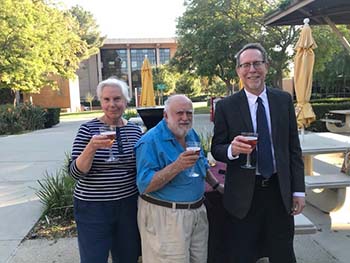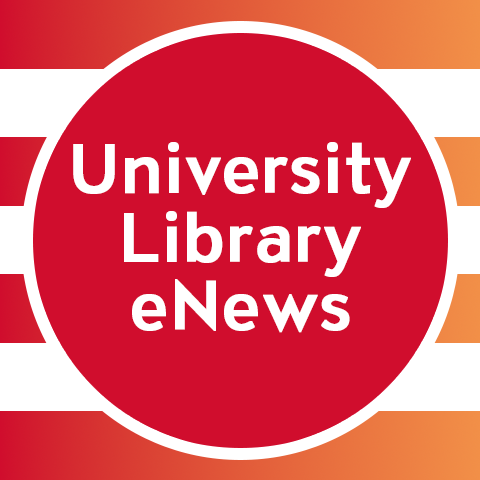Newsletter Edition: Spring 2022
Contributed by Tarry Kang
The Old China Hands Archives was established in the fall of 1996 by Professor Robert Gohstand to preserve and publicize the heritage of the many “outsiders” who have resided and worked in China. The Archives holds correspondence, diaries, photographs, postcards, books, periodicals, newspapers, and other materials. These provide a fascinating window into a turbulent phase of China's history, which included World War II and the internment of Allied country citizens residing in China by the Japanese—a bizarre mirror image of the shameful internment in the U.S. at the same time.
The recently established Bob and Maureen Gohstand Special Collections & Archives Endowment provides funding to process, maintain, and publicize the Old China Hands Archives within the Special Collections and Archives Department. Many stories in the Archives focus on Russian immigrants and political refugees. These documents and photographs tell the unique stories of those who fled a dangerous country to China. Many of them, decades later, fled their new home in China which had become yet another dangerous country.

Examples of Russian émigré families in China
Alex D. Kennedy Collection
Alex D. Kennedy was born in Shanghai in 1930. His parents had fled to Shanghai in the wake of the Russian Revolution in 1921. Kennedy attended school there until World War II when the family left China for the Philippines, where they lived in a displaced persons' camp for almost two years. They were then able to travel to the United States, where they arrived in San Francisco in 1950.
Benjamin M. Levaco Papers
Benjamin Levaco was a Russian-born Jew who grew up in China. His family moved to Harbin in 1915 to escape the Bolsheviks. In 1918, the family moved again to Yokohama, Japan, where Levaco attended College. The family lived in Japan until 1923, when the Great Kanto Earthquake hit and destroyed most of the city of Yokohama.
The Levaco's were left without a home, business, or liquid assets, as all records of their bank accounts were lost to the destruction of the earthquake. The family then moved to Tientsin, China, but then fled China in 1950, immigrating to New York City. Benjamin retired in the Los Angeles area, and traveled to China multiple times in the 1990s.
Zoya Shlakis Collection
Zoya Shlakis was born in Mukden in 1927. Her father was of Lithuanian descent and her mother a White Russian. The Shlakis family fled Russia for China, eventually settling in Shanghai in 1936. In 1948, as Communist forces advanced across China, the Shlakis family relocated to Taiwan. Zoya acquired a visa under the 1948 Displaced Persons Act, which allowed her legal entry into the U.S.
